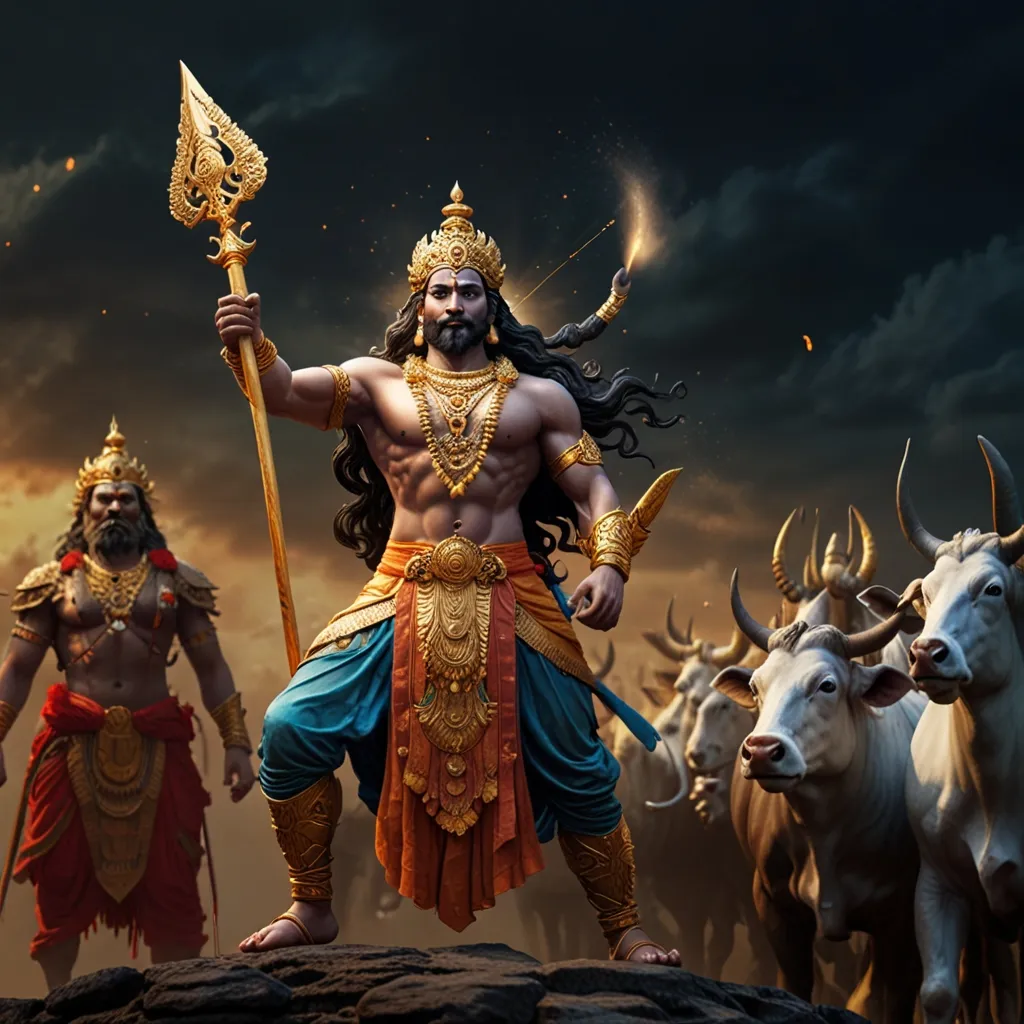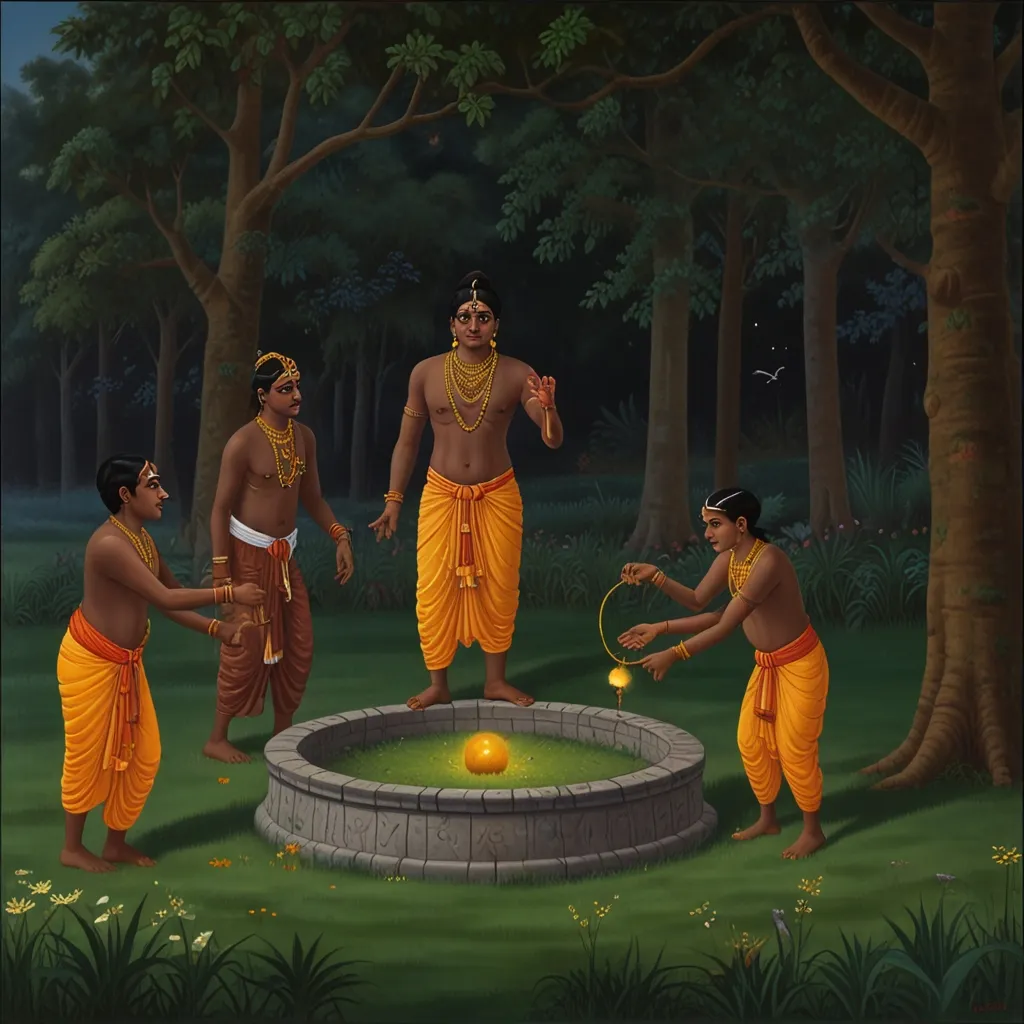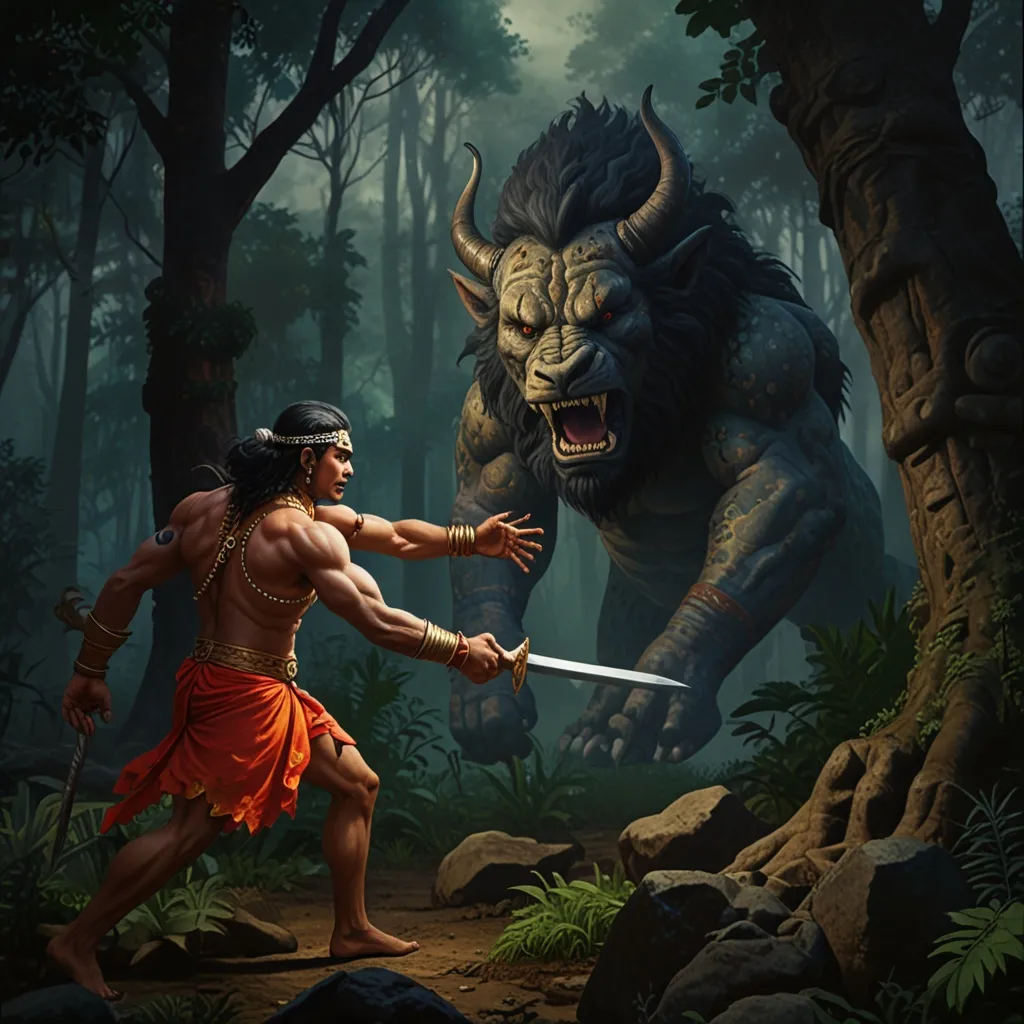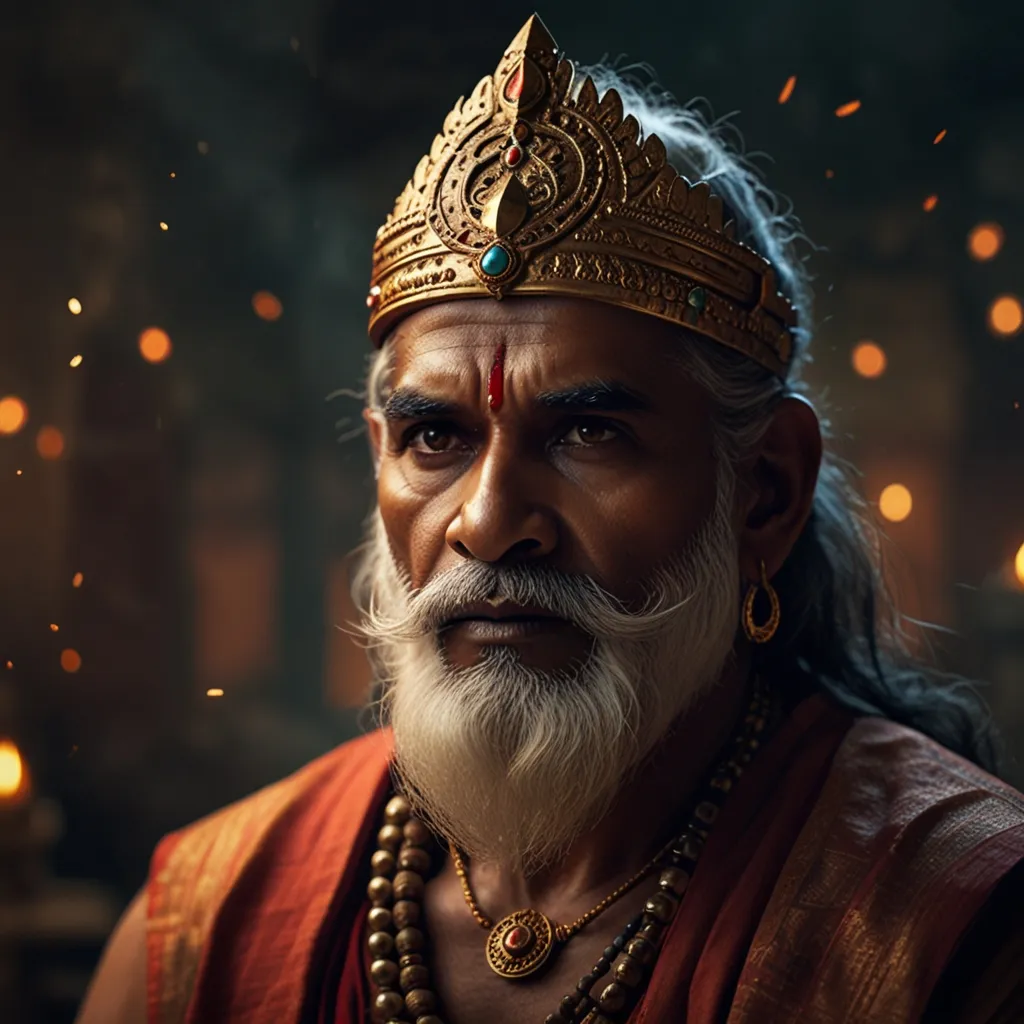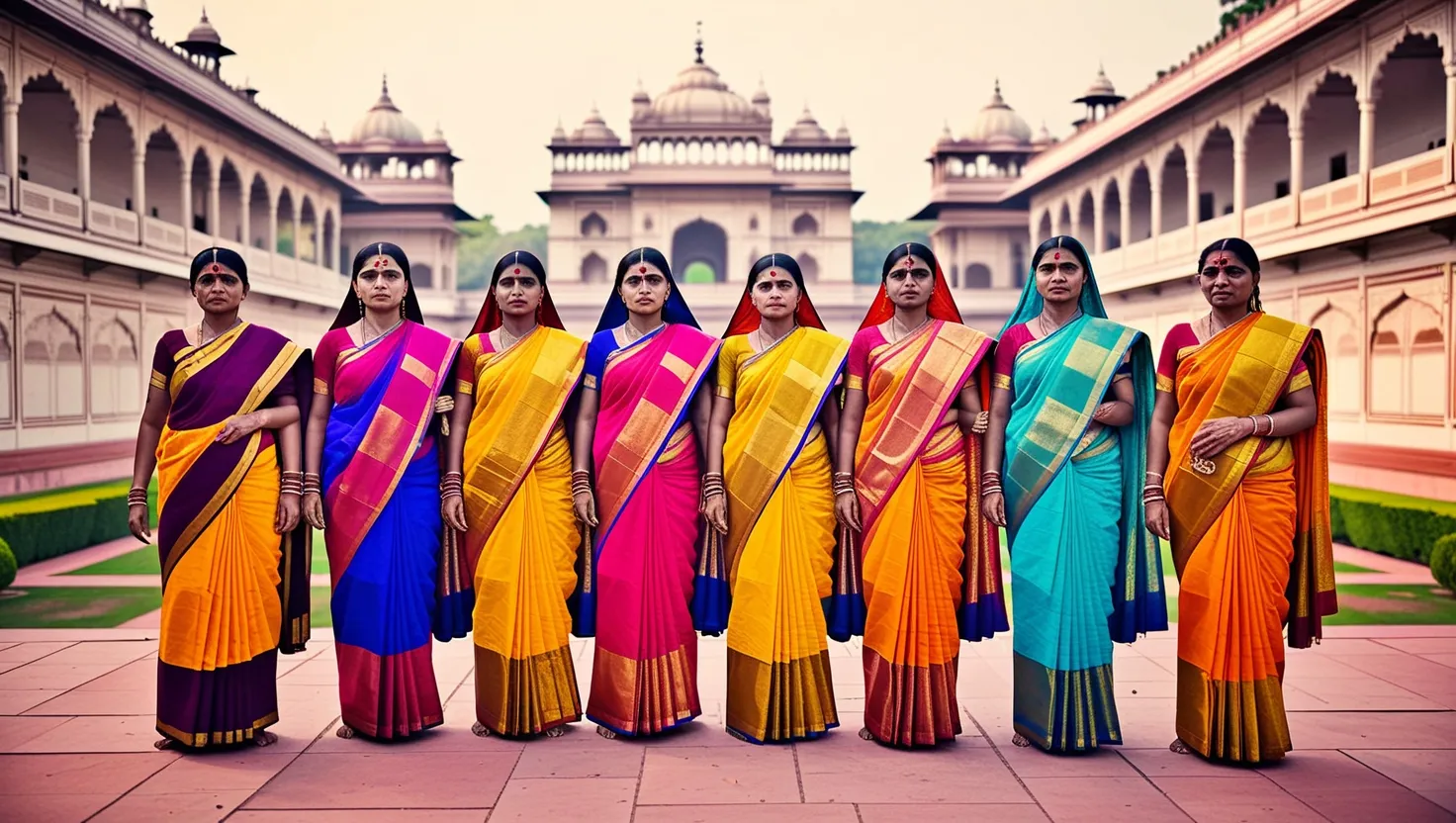In the sprawling realm of Hindu mythology, few figures are as captivating and awe-inspiring as Parashurama, the warrior-sage. His tale weaves together elements of divine purpose and human resilience, making him a symbol of justice and righteousness that resonates even today. Born during the Treta Yuga, Parashurama stands as the sixth avatar of Lord Vishnu, one of Hinduism’s principal deities.
Parashurama’s roots were a blend of celestial and royal. His father, Jamadagni, was a sage known for his unparalleled wisdom, while his mother, Renuka, was a princess from the warrior class, or Kshatriya. They led a humble life in a modest hut in Janapav, enriched by the presence of Surabhi, a divine cow gifted by the gods. Surabhi had the extraordinary ability to grant any desire, ensuring that their lives were simple yet wonderfully fulfilled. But peaceful days were numbered.
Enter King Kartavirya Sahasrarjuna, a powerful monarch with insatiable greed. The king learned about the miraculous powers of Surabhi and, driven by covetousness, resolved to claim the cow for himself. While Parashurama was away, the king and his forces arrived, demanding the cow. Standing firm on his principles, Jamadagni refused, prompting the tyrannical king to strike him down in cold blood.
Returning to a scene of heartbreak, Parashurama was engulfed by sorrow and helpless rage. He made a solemn vow to avenge his father’s murder, dedicating his life to eradicating the corrupt Kshatriyas responsible for such heinous acts. Armed with an axe bestowed upon him by Lord Shiva, Parashurama embarked on a relentless mission of justice.
That axe wasn’t just a tool; it became an extension of Parashurama’s righteous fury. He journeyed across the globe, ridding the world of Kshatriyas who had lost their moral compass. His wrath knew no bounds, leading him to annihilate male Kshatriyas twenty-one times over. Each time, the surviving wives bore new generations, only to face Parashurama’s vengeance yet again. His fierce quest for justice filled five lakes with their blood, serving as a grim reminder of the severity of his resolve.
However, Parashurama’s actions were not just driven by personal vendetta. He sought to restore balance and righteousness to a world that had lost its way. The Kshatriyas had strayed from their dharma, or duty, and Parashurama believed that harsh lessons were required to steer them back on the right path. His methods were draconian, but his intentions remained unblemished.
Beyond being an avenger, Parashurama was a celebrated teacher. He mentored some of the most legendary figures in Hindu mythology, including Bhishma, Dronacharya, and Karna. Despite knowing Karna would fight for the wrong side in the epic Kurukshetra war, Parashurama still imparted to him the knowledge of the Brahmashastra, a tremendously powerful weapon, but not without a caveat. He cursed Karna, ensuring that this gained wisdom would fail him at critical moments.
His influence wasn’t limited to warfare and mentorship. Parashurama was a geographical and cultural pioneer as well. Legend has it he reclaimed the western coast of India by hurling his axe into the sea, creating Parashurama Kshetra, which covers parts of today’s Maharashtra and Karnataka. Initially, this newly emerged land was barren and uninhabitable, but Parashurama called upon the snake king Vasuki to transform it into fertile soil. In gratitude, Vasuki and all snakes were appointed as the guardians of this region.
Parashurama’s legacy is also stitched into the story of Lord Krishna. It is believed he bestowed the Sudharshan Chakra—a divine, all-powerful weapon—upon Krishna. This weapon became a formidable tool for Krishna in his battles against evil.
Despite his numerous heroic exploits, Parashurama’s life was not free from challenges. One of the more famous anecdotes involves his encounter with Lord Ganesha. Attempting to meet Lord Shiva, Parashurama found his path blocked by Ganesha. In a fit of fury, he threw his axe at Ganesha, who allowed it to sever one of his tusks. This incident reveals the complexity of Parashurama’s character—balancing fierce determination with deep respect for the divine.
Looking forward, Parashurama’s story doesn’t end with his own life. According to the Kalki Purana, he is destined to become the martial teacher of Kalki, the tenth and final avatar of Lord Vishnu. Kalki is prophesied to usher in an era of peace and righteousness, and Parashurama will play a crucial role in preparing him for this monumental task.
In essence, Parashurama’s life is a rich tapestry filled with valor, righteousness, and the eternal struggle between good and evil. From a warrior avenging his father’s unjust death to a sage imparting divine knowledge, Parashurama’s story serves as a timeless reminder of the importance of standing up for justice, no matter the obstacles. His indomitable spirit and unwavering commitment to righteousness have made an enduring impact on Hindu mythology, inspiring countless generations and showcasing the profound power of justice intertwined with divine purpose.
